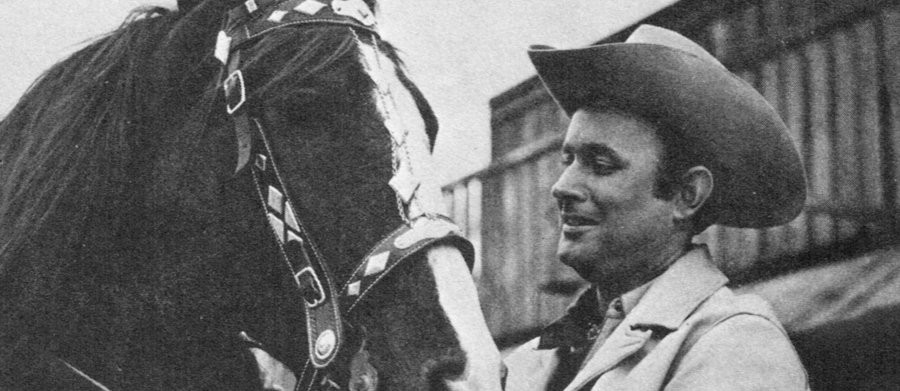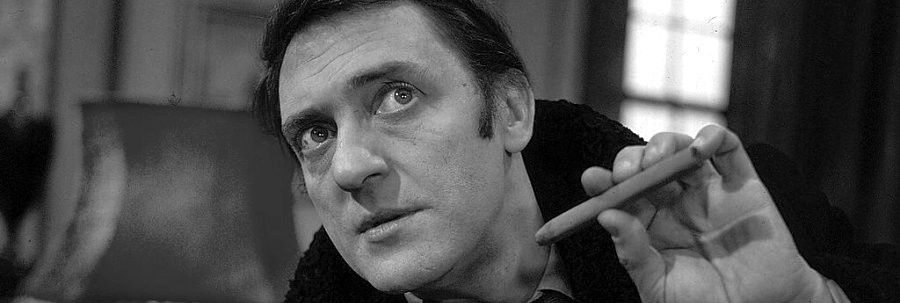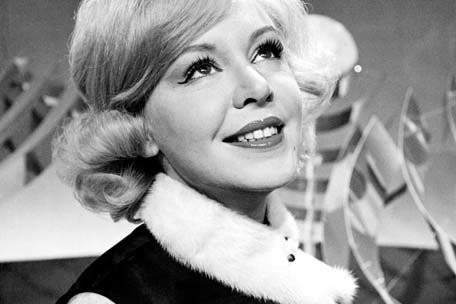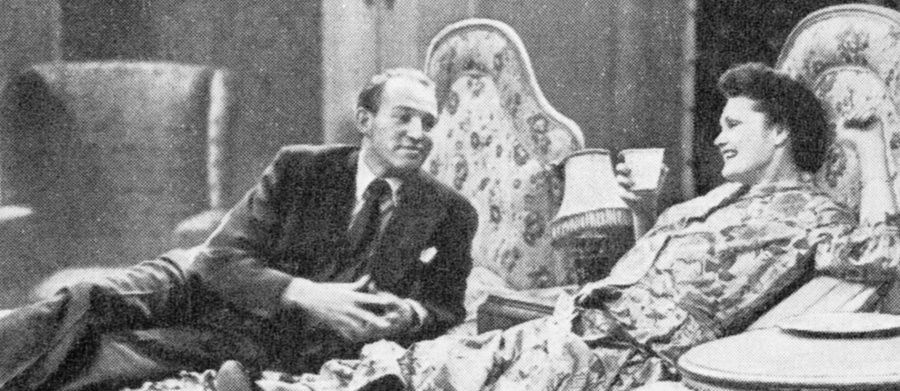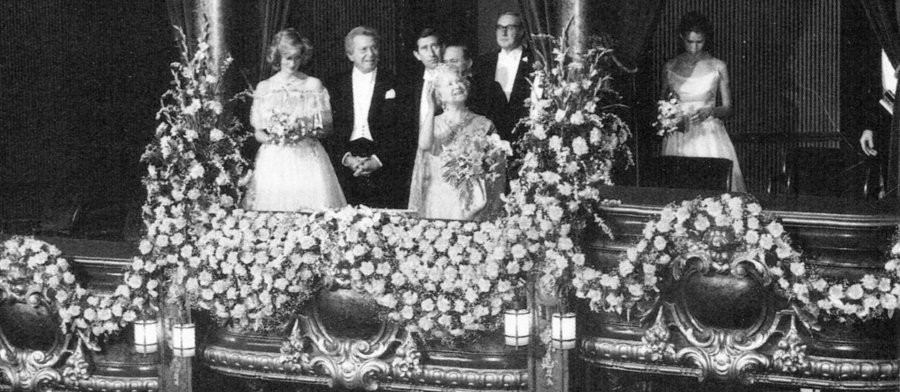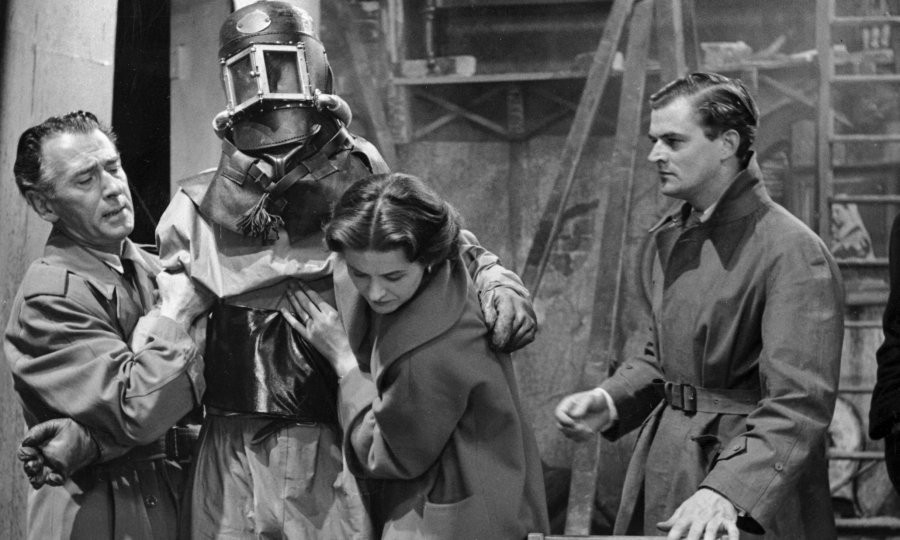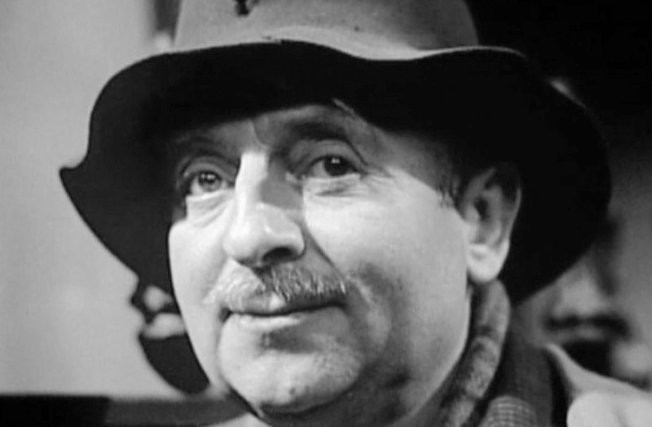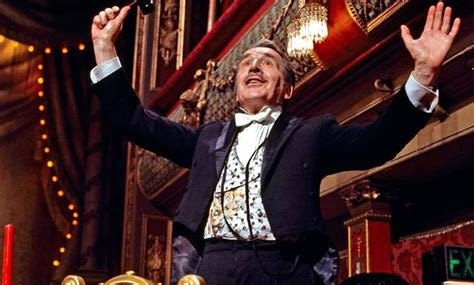
The Good Old Days
1953 - United KingdomWith a resounding barrage of garrulous and loquacious avidity, and a bang of his gavel for interjectional emphasis, master of ceremonies, Leonard Sachs, would herald an evening of divertissement awash with nostalgia and bewitching captivation, starring some of the best-known stars of the day as they recreated the magic and intimacy of the Edwardian music hall for BBC television. It was a formula that proved so successful that it ran for 30 years and in the process introduced around 2000 performers.
It was Producer Barney Colehan, who in 1953, proposed outside broadcasts from the Leeds City Varieties Theatre. It wasn't a wholly original idea because the BBC were already transmitting a series called 'Music Hall' which began in 1950. The idea was to send the cameras into an audience-filled music hall show in the hope of picking up and relaying into people's homes the same sense of atmosphere of people having a night out. 'Music Hall' was usually broadcast from the Scala in London's West End and produced before an audience. One of the Music Hall programmes was staged in the Bourneville Hall, Birmingham, thus giving the Midland TV audience their first local relay of television variety; another from the Theatre Royal Leeds, opened TV programmes for the North.

Colehan's idea was to have a master of ceremonies who would compere proceedings and the show would include more audience participation, singing along to the popular music hall songs of yesteryear. Derek Guyler hosted the series which was called City Varieties. But that same year (20 July) it changed its title and got a new host: Don Gemmell, who after only three shows handed over to Leonard Sachs. Sachs was on familiar territory hosting The Good Old Days. In 1936 along with Peter Ridgeway he had acquired premises on the top floor of 43 Kings Street, Covent Garden and rapidly established the Players' Theatre Club. In 1937, they presented an evening of Music Hall entertainment. The show was an instant success.
Sachs had a gift for discovering new talent and in those early days he introduced to audiences the likes of Patricia Hayes, Megs Jenkins, Bernard Miles and Peter Ustinov - who made his professional debut just twelve hours after his audition. The Players' quickly established itself by public and critics as 'The most original entertainment in London' and after the Second World War, during which time it was used for storage by the Army Corps of Cinematography, it continued to introduce stars-in-the-making. Destined to become household names, Hattie Jacques, Ian Carmichael, Clive Dunn, Patsy Rowlands and Maggie Smith all walked out for the first time on its hallowed floorboards.
Sachs was soon asked to present a similar show at the Festival Gardens, for the Festival of Britain. So favourable was the response, that the great theatre chain of the time, Moss Empires, invited Sachs to undertake a long tour of all the major variety theatres in the United Kingdom. It was only natural that the BBC should be the next to make an approach. His impact on The Good Old Days was instantaneous and the show, which was originally scheduled for four outings, was then extended to thirteen, then twenty-six weekly editions. It remained a part of the BBC light entertainment for 30 years.
Barney Colehan recalled how he was embarrassed by the theatre when one particular US star appeared:
The City Varieties was very small and though that was part of the beauty of it, the dressing rooms were like little shoe-boxes. When Eartha Kitt came along to do her first programme there, everybody was rather in awe of this strange lady in dark glasses and leopard-skin coat, so I took her into this tiny dressing room where there was hardly room for one person to turn round, and I apologised for it.
I said 'I'm sorry it's not like the dressing rooms you must be used to in Hollywood, but it's the best we have. The only thing I can say in its favour is that it may be small, but it was once used by Charlie Chaplin.'
Then I went down to carry on with the rehearsal and Eartha's daughter, a little girl about twelve then, came and sat in the stalls. I went over to her and said, 'How's your mother?'
She said, 'Oh, she's in floods of tears.'
I said 'Well, I'm terribly sorry but there's nothing we can do, that's the best dressing room we've got.'
'Oh, it's not a question of that,' she said. 'Charlie Chaplin is her idol and the fact that she's in the same dressing room he used to have, you'll never get her out.'
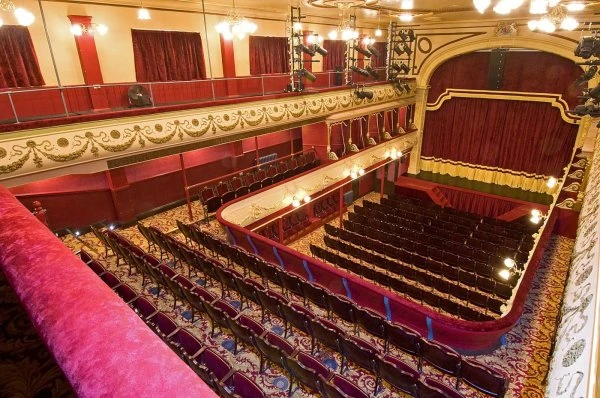
Tickets to the show were free, the only stipulation being that to sit in the audience you had to be in period costume. So women donned their shawls and bonnets and men their blazers and boaters - and often their smartest Edwardian military uniforms - and there was never a shortage of either. By 1975 there was a waiting list for tickets of 24,000 people.
Those lucky enough to get tickets were treated to an atmosphere set within an authentic Edwardian theatre resplendent with plush drapes, galleried upper floor with boxes and were entertained by the likes of Danny La Rue, Tessie O'Shea, Roy Hudd, Ken Dodd, Arthur Askey, Roy Castle, Reg Varney, Bernard Cribbins, Frankie Vaughan and countless others, each dressed in similar garb to the people in the auditorium. The audience would laugh along at the jokes and sing along with the traditional music hall standards before being invited to close each show with an exuberant exaltation from the chairman to join in the chorus from 'The Old Bull and Bush' featuring the whole cast, "but chiefly yourselves".
The last show was broadcast on Sunday 2 October 1983, and two months later, on Friday 30 December the BBC broadcast a documentary Goodbye to the Good Old Days. There were still enough people waiting for tickets to keep the theatre full for anoth
Seen this show? How do you rate it?
Seen this show? How do you rate it?
Published on October 20th, 2022. Written by Laurence Marcus (Reference: http://www.playerstheatre.co.uk | The Television Annual for 1950/51 | The Television Annual for 1952 | Television The First Forty Years by Anthony Davis (1976)) | Coming to You Live! by Denis Norden, Sybil Harper and Norma Gilbert for Television Heaven.


